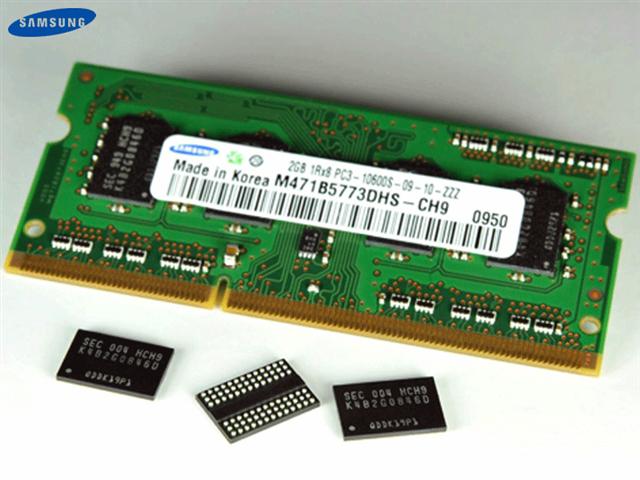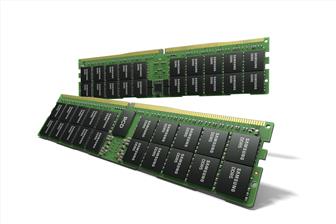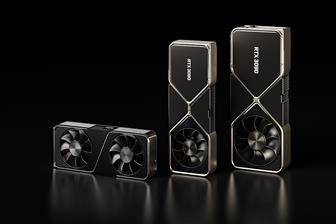
Samsung Electronics has announced its first 30nm-class DRAM memory has successfully completed customer evaluations, in 2Gb densities.
The 30nm-class 2Gb DRAM reduces power consumption by up to 30% over 50nm-class DRAM, the company said. A 4-gigabyte (GB), 30nm module when used in a new-generation notebook will consume only three watts per hour, which is just 3% of the total power usage of a notebook.
The new DDR3 will be used in a broader range of products, from servers to notebooks, desktops, and future versions of netbooks and mobile devices.
Samsung said its 30nm-class DDR3 is scheduled for mass production in the second half of 2010.

Samsung HKMG DDR5
Samsung Electronics has expanded its DDR5 DRAM memory portfolio with a 512GB DDR5 module...
Photo: Company

Nvidia GeForce RTX 30 series GPUs
Nvidia's GeForce RTX 30 series GPUs are powered by the company's Ampere architecture. The...
Photo: Company

Apple HomePod mini
Apple's HomePod mini is the newest addition to the HomePod family. At just 3.3 inches tall,...
Photo: Company

Apple 13-inch MacBook Pro with Magic Keyboard
Apple has updated the 13-inch MacBook Pro with the new Magic Keyboard for an improved typing...
Photo: Company

Apple iPad Pros
Apple's new iPad Pros comes with the latest A12Z Bionic chip, an ultra-wide camera, studio-quality...
Photo: Company
- Musk says chip capacity will decide winner of AI race (Mar 21) - EE Times
- Google taps MediaTek for cheaper AI chips (Mar 17) - The Information
- European project gets $260 million for HPC chip sovereignty (Mar 6) - EE Times
- The trouble with MAGA's chipmaking dreams (Mar 3) - Economist
- Automotive chips: Gloom and doom or boom by 2030? (Feb 14) - EE Times
- Deepseek is more Wall Street than Silicon Valley (Feb 3) - Culpium, by Tim Culpan
- Tech CEOs try to reassure Wall Street after DeepSeek shock (Jan 30) - Wall Street Journal
- TSMC to make chips for cryptominer Bitdeer at new US fab (Jan 17) - Culpium, by Tim Culpan
![]() Etron's Nicky Lu on TSMC's global playbook and Taiwan's AI-memory pivot: no bottlenecks, no backpedaling
Etron's Nicky Lu on TSMC's global playbook and Taiwan's AI-memory pivot: no bottlenecks, no backpedalingGenerative AI is redrawing the tech landscape—from...
![]() Global supply chain: China market
Global supply chain: China marketChina market news coverage

AI server BBU and Taiwan players, 2025
Taiwan-based power supply giants will benefit from rising demand for AI servers as the application's adoption of BBUs is set...

Tesla AI development in EVs and robots
Tesla leads the trend of automakers deploying humanoid robots, with reducing labor workforce as the initial goal.

India 5G market and development, 2025
India is rising to become a major 5G nation and a growth driver for the global telecom market in 2025.






